Taming ‘The Bear’: What Alice Waters could teach chef Carmy
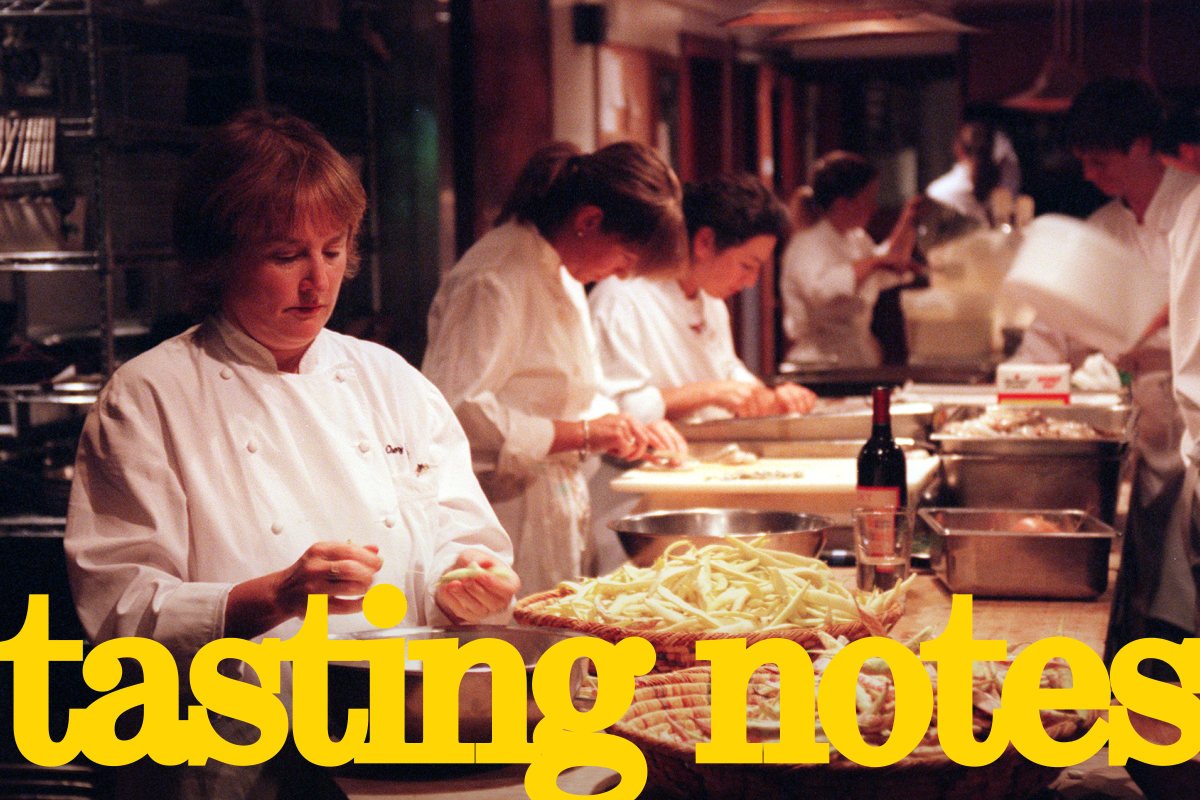
Announcing this year’s Restaurant of the Year and Gold Award, plus this weekend’s Mr. Beef pop-up and more Chicago eating, how climate change is moving winemakers from “terroir” to “there-ness,” a grasshopper invasion that could raise beef prices, the ice cream show wowing Long Beach ... and Lawry’s now not-so-secret (and incredible) bar menu. I’m Laurie Ochoa, general manager of L.A. Times Food, with this week’s Tasting Notes.
Who can tame ‘The Bear’?
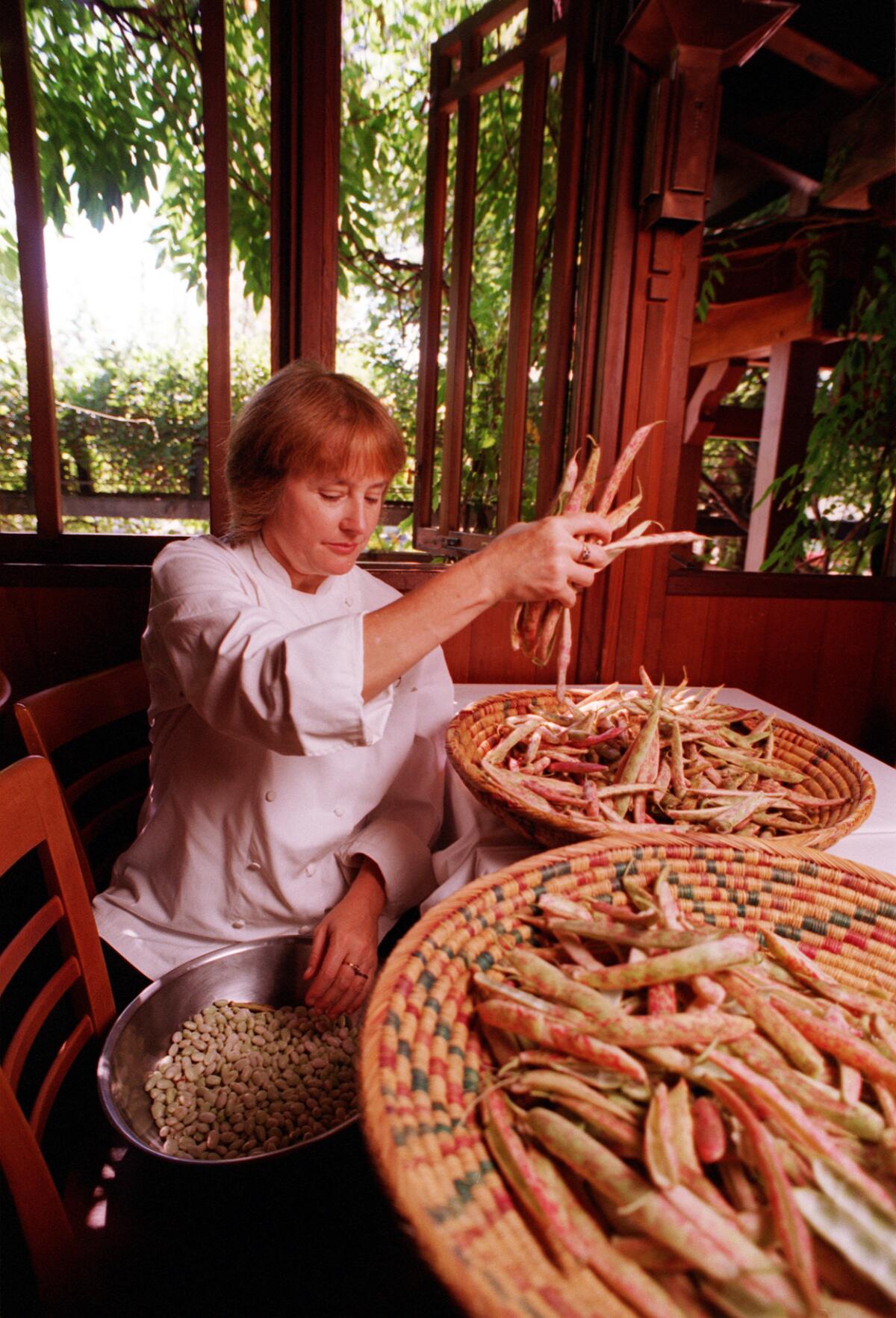
It’s been hard to ignore all the strong feelings about the third season of FX’s restaurant-centered series “The Bear.” Critic reviews range from our own Robert Lloyd‘s high praise (“as magnificent as television ever gets”) to the brutal assessment of Slate’s Jack Hamilton (“a bad show ... [whose] aimlessness becomes mistaken for sophistication”). In between is the New York Times’ James Poniewozik, who expresses frustration with the show’s season but says it “remains remarkable [in] expressing emotion and ideas through food and its preparation.”
Among those with a passion for the kind of ambitious restaurant at the heart of the show, there is also debate. Most in contention on chef Carmy’s list of nonnegotiables — “vibrant collaboration,” “not about you,” “of the place,” “break down all boxes before putting them in dumpster” — is his decision to push his staff to execute a wholly new menu every night, all in pursuit of a Michelin star. It’s a huge ask for a restaurant crew largely inexperienced in the demands of high cuisine. And as many have pointed out, Michelin inspectors tend to reward consistent excellence over erratic bursts of brilliance.
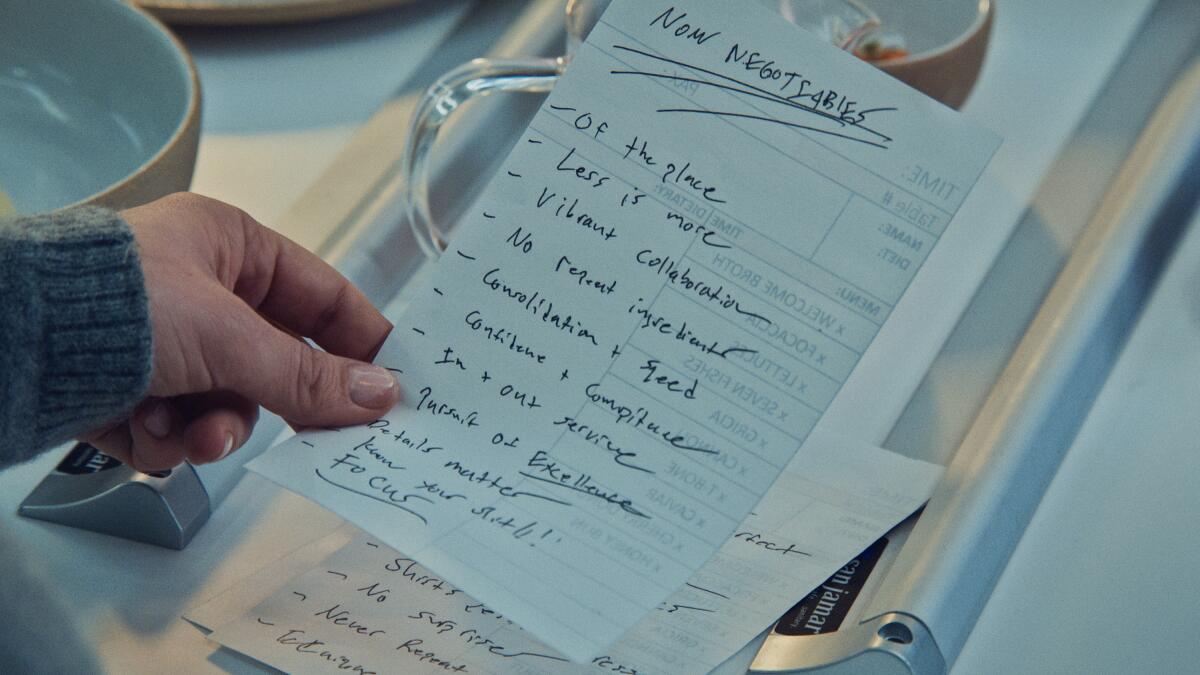
Consider that the show’s frequently mentioned touchstone restaurant, Rene Redzepi‘s Noma in Copenhagen, has a separate test kitchen of chefs, led by head of research and development Mette Søberg, to map out each season’s menu. Adjustments are not made on a whim.
But as chaotic as Carmy’s change-ups come across on “The Bear,” one of our greatest American restaurants was built on the idea of daily change: Chez Panisse.
Where Carmy seems to initiate his “change menu every day” nonnegotiable as a dysfunctional way of dealing with his personal demons, inflicting the chaos of his childhood as the son of an alcoholic (the series’ true subject, writes culture critic Mary McNamara) into his professional life, Chez Panisse’s constant change is a more generous practice.
Alice Waters’ longtime Berkeley establishment is modeled on the kind of French countryside place where the chef’s menu du jour is created in response to the seasons and to what her purveyors have available that day. It’s less about bringing greater glory to the chef and more about sustaining a community of farmers and food producers while bringing pleasure to the guests. (Real-life chef Thomas Keller tells this to Carmy in a flashback scene, but the lesson seems forgotten.)
In 1996, when Chez Panisse was celebrating its 25th anniversary, I had the chance to talk in-depth with Waters about her cooking philosophy and efforts to shape the way food is grown and raised in this country. I was also able to witness how she and her chefs at the time came together in the afternoon to finish writing the night’s menu and cook together as a team.
Gathered at a table in the dining room as if they were guests at their own restaurant, the chefs were friendly, smart, respectful of Waters even as she was respectful of them. When one of the dishes wasn’t “perfect means perfect,” as Carmy would have put it, everyone calmly pitched in to make it right.
It was the opposite of “The Bear’s” high-stress “‘F— you’ ... ‘No, F— you” Carmy-Richie dynamic, and closer to the tone set by Olivia Colman‘s chef Terry, one of Carmy’s mentors.
There was even a moment not unlike Season 2’s much-admired chef Terry mushroom peeling scene when Waters explained why she would spend hours shelling beans: “Every time I do the beans, I’m debating. Are they tough enough? Are they fuller than they were yesterday? Do we have to cook them a little longer? It’s the kind of information that only somebody thinking about the final result can do.”
Then there was this discussion among the Chez Panisse chefs about how to fine-tune one of the night’s courses:
“OK. For the salmon,” Waters says, “I haven’t tried this but I can taste it in my mind: Blanch a piece of bacon, wrap the salmon and bake it on a little juicy mirepoix, a little tiny dice of carrot and fennel and onion, with rosemary and savory in it.
“What’s your experience?” she asks the chefs. “Will it work? I’m traumatized because I have to cook dinner for the president on Tuesday.”
“Is the baking getting the bacon brown?” asks Christopher Lee. “People don’t like raw bacon.”
“You could put the bacon in the mirepoix,” suggests Jerome Waag.
“But then it doesn’t flavor the salmon,” Waters says.
“And the salmon’s been kind of lean lately,” forager Alan Tangren adds.
“What if you grilled it?” proposes Seen Lippert.
“That would be cool,” Lee says.
Waters agrees.
Now, that, chef Carmy, is how you do “vibrant collaboration.”
‘Bear’ tracks
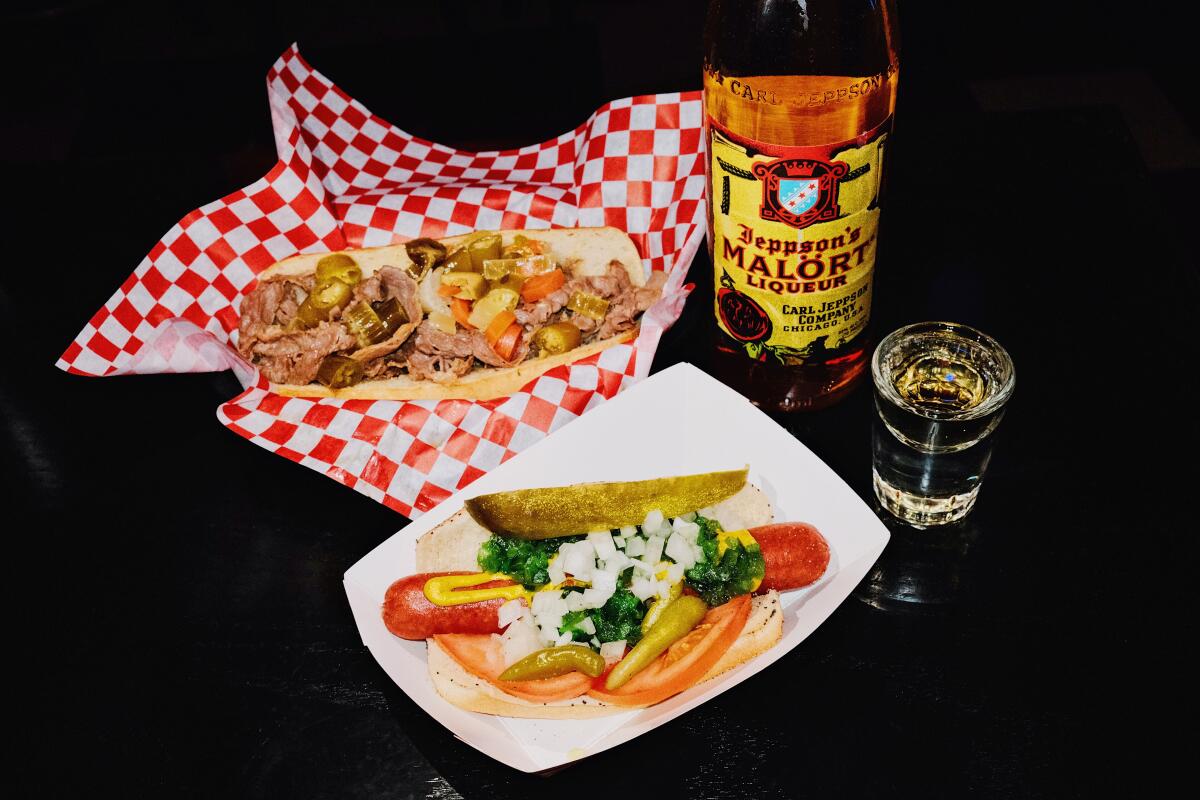
If the crew on “The Bear” has turned to high cuisine as the story’s progressed, fans of the show have maintained their love for the Italian beef and other Chicago classics that first gave the show its street cred. Stephanie Breijo, who in 2022 reported on how the show fed the popularity of the Italian beef in Los Angles, has now done a guide to 13 places around Southern California that serve Chicago dogs, deep-dish pizzas, ices and, yes, plenty of Italian beef.
And in this week’s edition of Screen Gab, Yvonne Villarreal expands on her interview with “The Bear” standout Liza Colón-Zayas, whose character Tina Marrero is at the center of Season 3’s most-praised episode, “Napkins.” Among other things, they talk Puerto Rican food and Crock-Pots: “One day it’d be pollo guisado, another day it was carne guisada — stews; some yellow rice. It’s like: What can you throw together when you only have 10 minutes to spare so your family can have a hot meal while you’re out working?”
She also talks with the show’s culinary producer Courtney Storer about her pop-up in L.A. with “legendary Chicago beef shop Mr. Beef — which helped inspire ‘The Bear’ — this weekend. You’ll be able to find Mr. Beef’s iconic Italian beef sandwiches at the West 3rd Street location of Uncle Paulie’s Deli on Saturday and Sunday from 11 a.m. to 3 p.m., with no preorders and no online delivery orders. ‘Old school,’ said Uncle Paulie’s co-founder Paulie James.”
Announcing ... L.A. Times Restaurant of the Year
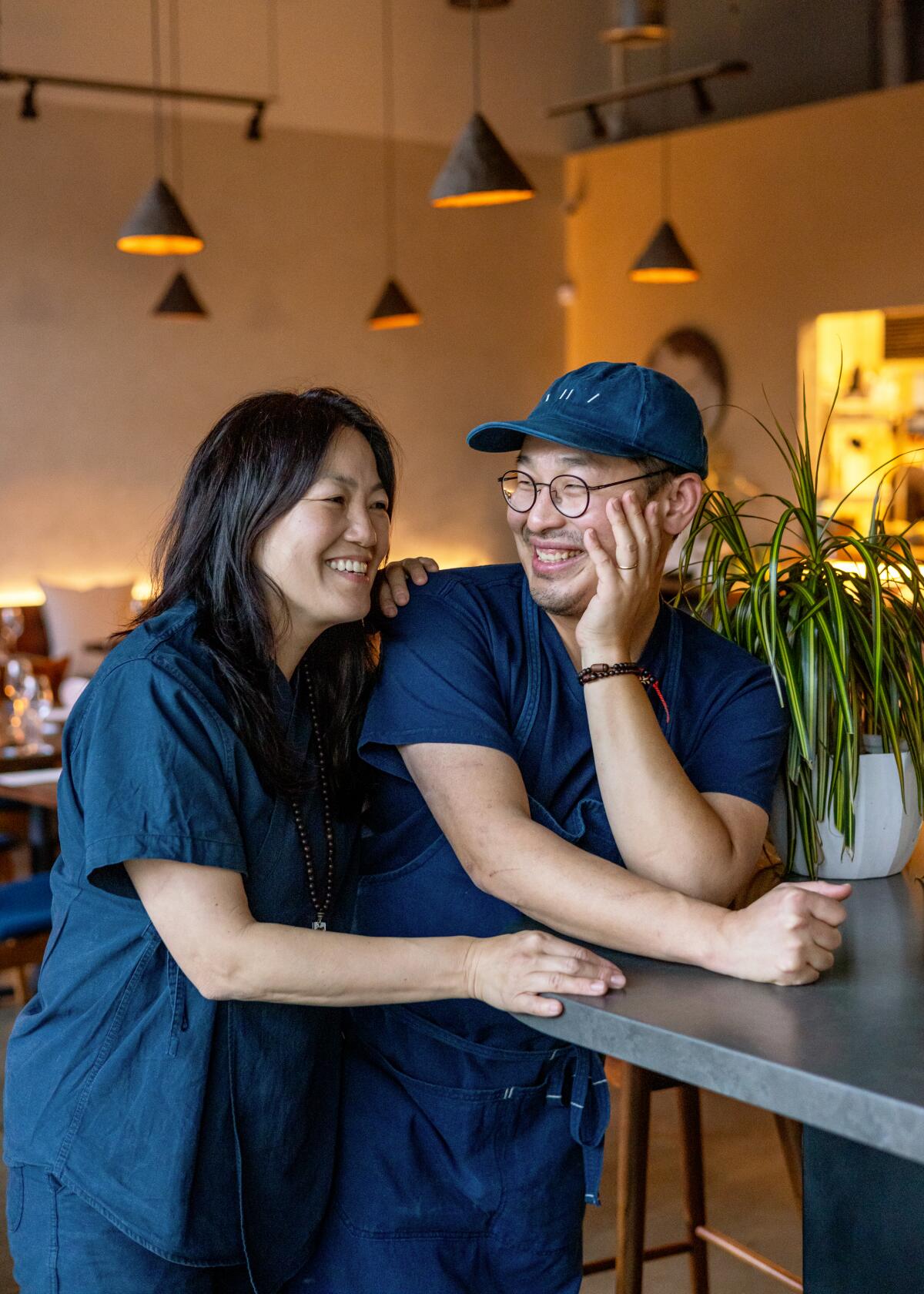
I’m thrilled that critic Bill Addison has chosen Baroo, the modern Korean tasting menu spot in downtown’s Arts District, as this year’s L.A. Times Restaurant of the Year. It started its life, Addison writes, “nearly a decade ago in an unassuming Hollywood strip mall” serving “wildly satisfying grain bowls and pastas they sold for $9 to $15 each.” After a too-long hiatus (for those of us who loved his food), chef Kwang Uh with wife and restaurant partner Mina Park transformed Baroo into an elegant, calming space presenting what Addison calls “the city’s most persuasive foray into innovation.”
And the L.A. Times Gold Award goes to ...
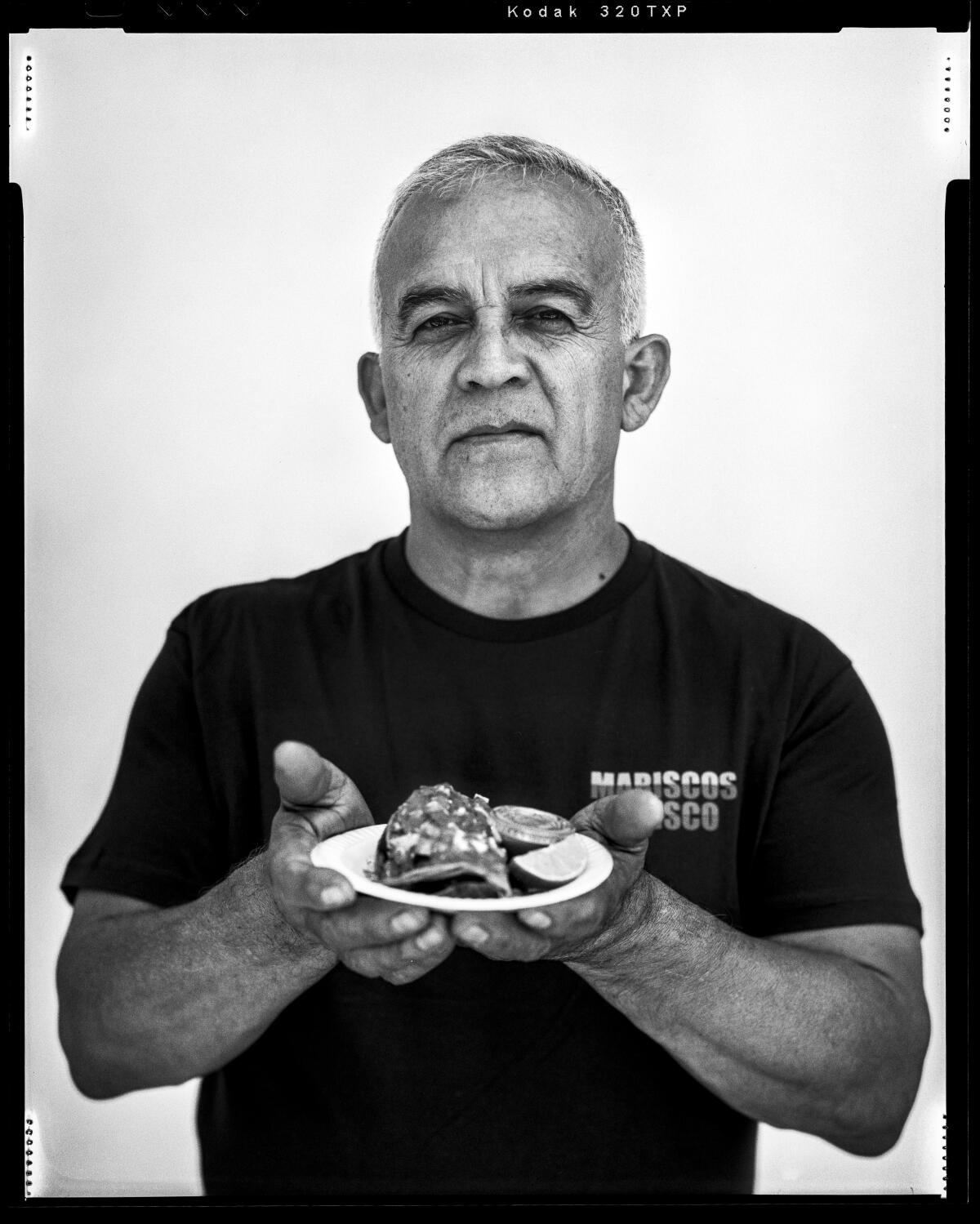
Raul Ortega‘s taco truck Mariscos Jalisco has been a part of every “101 Best Restaurants in Los Angeles” guide since 2013 under Times critics Bill Addison, Patricia Escárcega and the late Jonathan Gold. Now it is this year’s winner of the L.A. Times Gold Award. As I wrote earlier this week, “Ortega’s influence in shaping a part of Los Angeles’ culinary landscape with a single beloved taco — the taco dorado de camerones — sync beautifully with the parameters set out by Gold when he gave Wolfgang Puck the first Gold Award during The Times’ second Food Bowl festival in 2017. The key phrase: ‘honoring culinary excellence and expanding the notion of what Southern California cooking might be.’”
The Restaurant of the Year and Gold Award presentations for 2024 will take place Sept. 20 during this year’s Food Bowl festival at Paramount Studios. Early-bird tickets with savings on general admission went on sale this week at lafoodbowl.com.
You’re reading Tasting Notes
Our L.A. Times restaurant experts share insights and off-the-cuff takes on where they’re eating right now.
You may occasionally receive promotional content from the Los Angeles Times.
From ‘terroir’ to ‘there-ness’
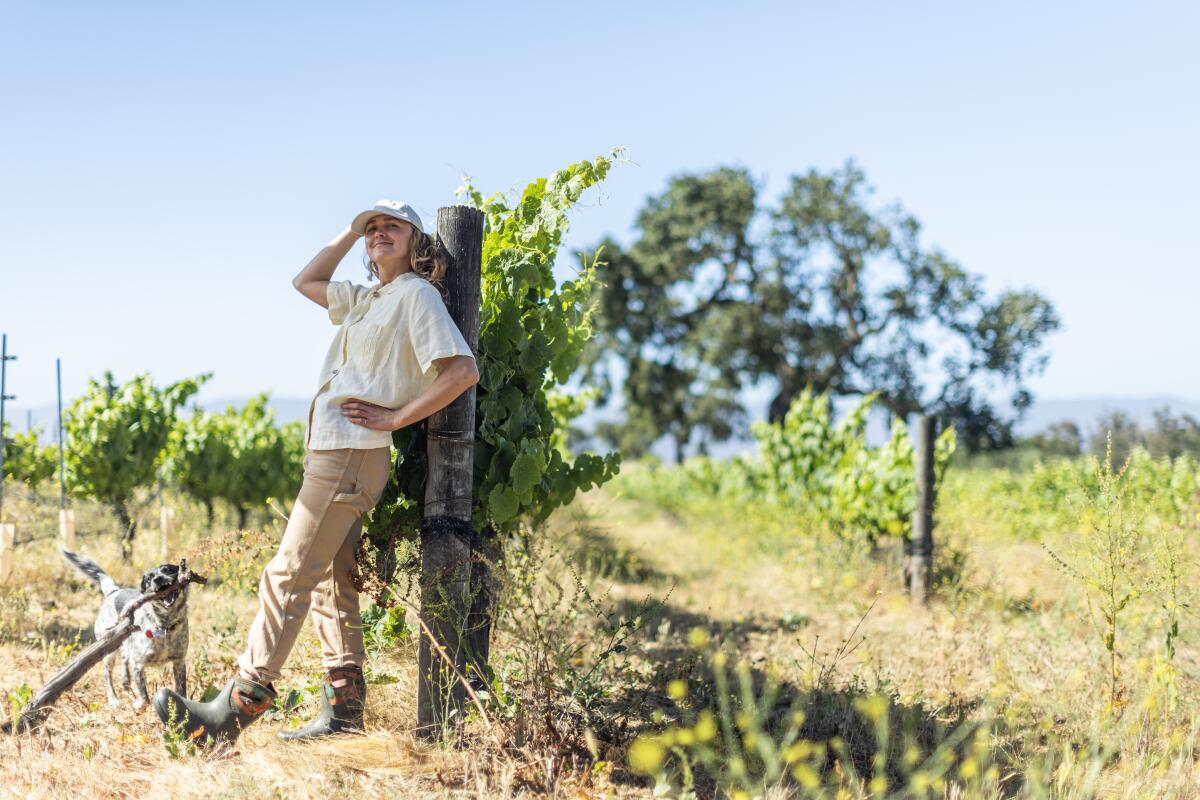
David Rosoff (of the late Bar Moruno) got an in-depth look at the farming practices Âmevive winemaker Alice Anderson and her partner, Topher De Felice, have undertaken at the historic Ibarra-Young vineyard (where famed winemaker Bob Lindquist once farmed) in Los Olivos, Calif., “growing grapes for some of the most singularly expressive wines in California.” In this critical time of climate change, Rosoff writes, these practices “could go a long way toward mitigating the environmental challenges posed by climate change, soil erosion, decreasing rain and any one of a number of potentially devastating vine diseases.” A fascinating read.
Also: Cindy Carcamo reports that California farmers are bracing for a devastating grasshopper invasion that could affect beef prices.
SoCal’s sweetest ice cream show
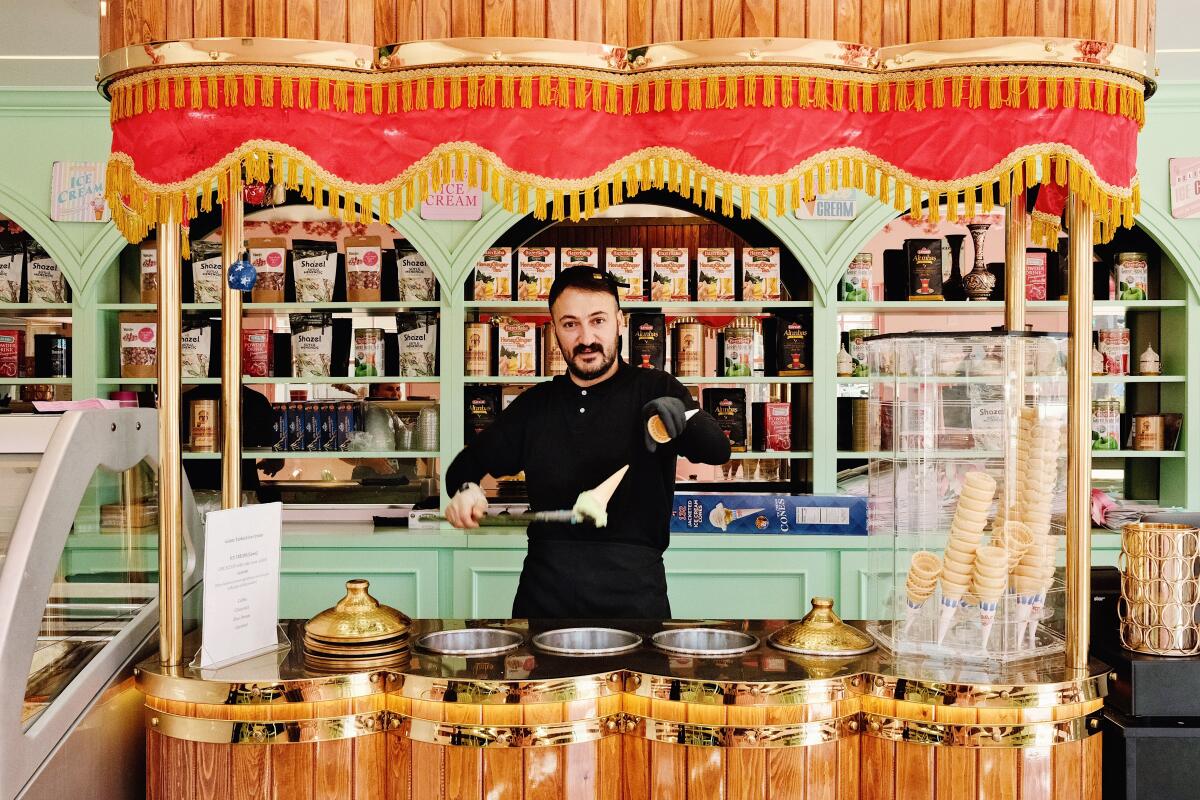
“A centuries-old Turkish ice cream style” is behind the “ice cream show” wowing kids and adults in Long Beach at the new scoops shop Galata. Stephanie Breijo experienced the flips and twists at the counter performed by ice cream master Erkan Gozal and talked with manager Akin Gulec about the rare dondurma ice cream style, which “utilizes salep (ground orchid roots) and mastic (plant resin) to create a chewy texture that’s also slower to melt than most other ice cream.”
Also ...
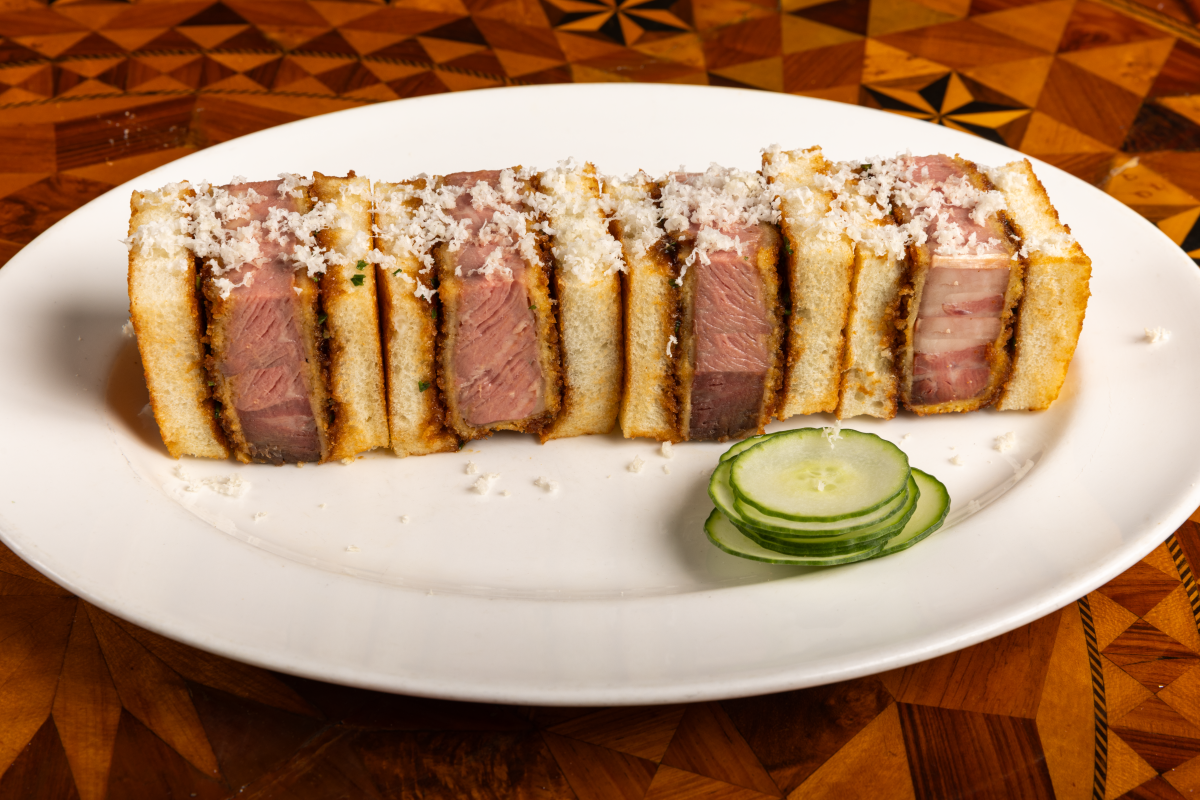
- Jenn Harris, whose depth of knowledge about this city’s restaurants should never be challenged, shared her insider intel about the awesome at-the-bar-only menu at Lawry’s the Prime Rib. We’re not just talking prime rib sandwiches but a prime rib katsu sando with curls of fresh horseradish. Yes, the free meatballs are gone, but check the olives in your martini — “stuffed with squares of prime rib.”
- The iconic “neon-lighted cowboy hat” will remain at the location of the now-closed Arby’s on Sunset Boulevard when Prince Street Pizza opens “its first drive-thru pop-up” next month. Bryan A’Hearn reports.
Eat your way across L.A.
Like what you're reading? Sign up to get it in your inbox every week.
You may occasionally receive promotional content from the Los Angeles Times.

Eat your way across L.A.
Get our weekly Tasting Notes newsletter for reviews, news and more.
You may occasionally receive promotional content from the Los Angeles Times.




